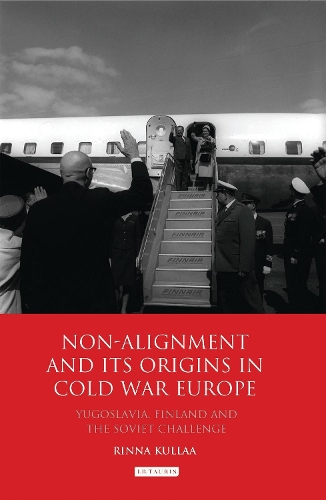
Non-alignment and Its Origins in Cold War Europe: Yugoslavia, Finland and the Soviet Challenge
(Paperback)
Publishing Details
Non-alignment and Its Origins in Cold War Europe: Yugoslavia, Finland and the Soviet Challenge
By (Author) Rinna Kullaa
Bloomsbury Publishing PLC
Bloomsbury Academic
28th May 2020
United Kingdom
Classifications
Tertiary Education
Non Fiction
Cold wars and proxy conflicts
327.4704897
Physical Properties
Paperback
240
Width 135mm, Height 216mm
286g
Description
After World War II, Europe stood divided between two clearly defined and competing ideologies and systems of government. Within this context of confrontation and mutual hostility between the United States and the Soviet Union, Rinna Kullaa provides a unique analysis of the attempts of two European states to successfully avoid absorption into the Soviet bloc. This book explores the relations of Yugoslavia and Finland both with the Soviet Union, and with each other, as they strove to preserve and create their independence. Whilst at first attempting the neutralism strategy employed by Finland, in the face of Soviet hostility, Tito's Yugoslavia instead led the way to the founding of the Non-Aligned Movement in 1961. Kullaa's crucial analysis of the formative period of the Cold War will be of vital interest to students and researchers of International Relations, European History, the Cold War and diplomacy.
Author Bio
Rinna Kullaa is Postdoctoral Fellow at the European Studies Institute and the Harriman Institute for Russian, Eurasian and Eastern European at Columbia University. She holds a PhD in European History from the University of Maryland and an MPhil in Russian and Eastern European Studies from the University of Oxford.
